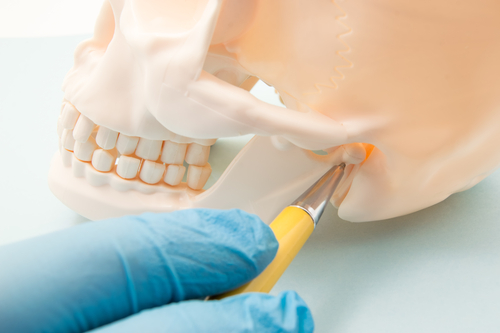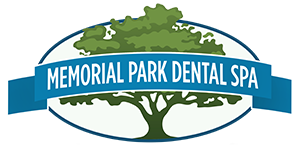
Dental Care for TMJ Disorder in Houston,TX
Bellaire, TX TMJ Dentists
You might have a temporomandibular joint (TMJ) disorder if you experience a painfully tight jaw, frequent headaches, or bruxism (teeth grinding). You may rely on the Memorial Park Dental Spa team, which includes Drs. Nishano Thomas, Mary Abdou, and Chaluparambil, if you reside in Houston in the neighborhood. In order to ease your agony, they provide specialized, expert dental care. Give us a call or book online today.
What is TMJ?
Although TMJ stands for temporomandibular joint, people often use the acronym to refer to temporomandibular joint disorder, a condition that involves painful tightness in the jaw.
When you have a TMJ disorder, the muscles and tendons that allow you to chew, talk and smile are tight and distended, which causes inflammation, pain, and reduced movement. If you have arthritis, poor posture, trauma to your jaw, or even high-stress levels, you are at risk for developing TMJ.
What are the symptoms of TMJ?
In addition to pain in your jaw, there are a variety of TMJ warning signs, including:
- Pain when you open your jaw to yawn or talk
- Bruxism (teeth grinding)
- Locking or clicking of the temporomandibular joint
- Headaches and migraines
- Pain in your face or ears
How is TMJ diagnosed?
Dr. Thomas and Dr. Abdou may use X-rays to get a good look at your jaw and check for abnormalities. They’ll listen to your jaw as you open and close your mouth and use their hands to feel the way it moves. They’ll also talk to you about your symptoms, your areas of discomfort, and the pain you’re experiencing.
How is TMJ treated?
Dr. Thomas and Dr. Abdou can customize treatments for TMJ, depending on the severity of your condition and your specific needs.
In many cases, symptoms are mild and resolve after a few days of rest, eating soft foods, alternately applying ice packs and warm compresses to your jaw, and taking anti-inflammatory medications.
You might also benefit from wearing a night guard while you sleep. There are a variety of designs available, and all help hold your jaw in the correct position. This not only reduces tension in your jaw, but also prevents bruxism, and in some cases might even reduce snoring.
We can use special injections and medical treatments to help temporarily paralyze and relax muscles. If a muscle spasm in your jaw causes your TMJ, the injection can help release the spasm and relieve your symptoms.
